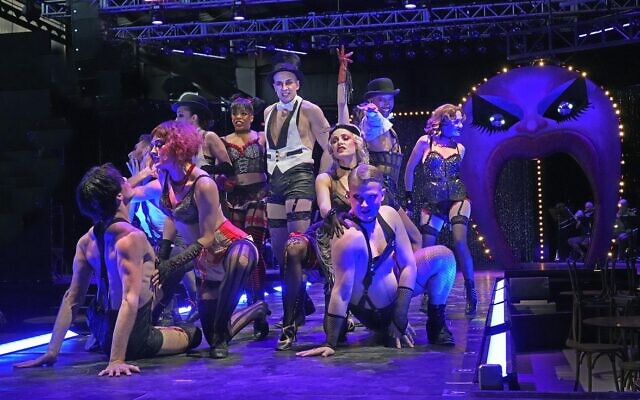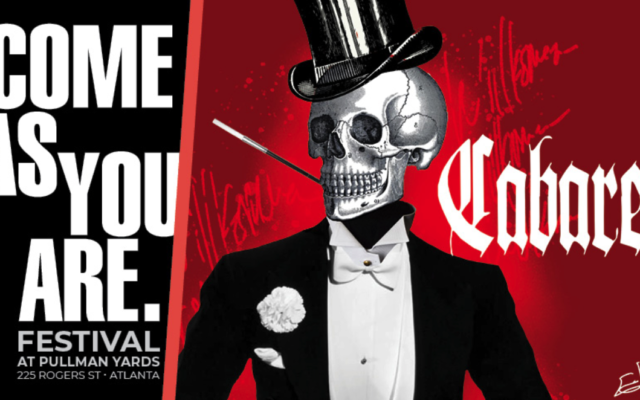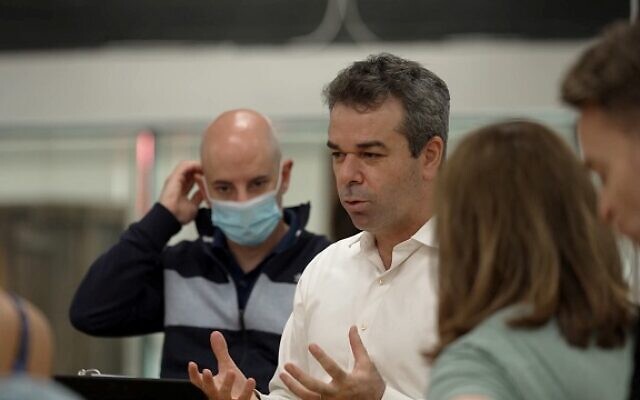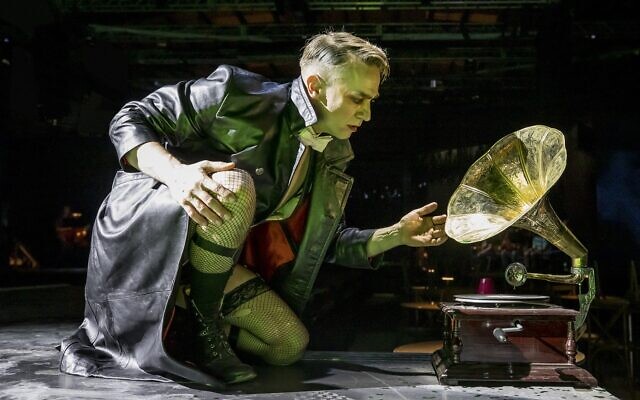Atlanta Opera’s Updated ‘Cabaret’ as Relevant as Ever
The final production of the opera season is set in the industrial landscape of Pullman Yards.

Fifty-six years after it first arrived on Broadway, the acclaimed musical “Cabaret” returns in an Atlanta Opera production that is every bit as relevant and powerful as it was when it debuted.
The original production, with music and lyrics by Jewish American composers and lyricists John Kander and Fred Ebb, is set in Berlin during the rise of Nazism and antisemitism in the late 1920s, as the final years of the Weimar Republic draw to a violent close.
Artistic Director Tomer Zvulun, who was born and raised in Israel, directs the swift-moving production with a sure hand and a keen sense of history. It’s part of what the opera company calls its “Come As You Are Festival,” which also includes “As One” by Laura Kaminsky — an opera with an LGBTQ+ theme. Both productions were sponsored by the Molly Blank Fund of the Arthur Blank Family Foundation.

Zvulun described the show, with its warning about hatred, as “ever so relevant right now.” “Cabaret,” he says, reflects what happens when a society accepts the idea that one group or another is inferior and that violence can be used against them.
“Whether that group is Jewish or gay, black, Hispanic or Asian, you name it,” he told the AJT. “And we see that big time, right now, in the world and in America every day. And I think we need to take a stance and say that that’s not okay and that it can lead to disastrous results.”
According to statistics compiled by the Anti-Defamation League, antisemitism in the U.S. is at an all-time high. In Georgia last year, antisemitic incidents were up 133 percent.

It’s a message that has particular meaning for Zvulun, who grew up during the the 1970s and 1980s, when the Holocaust was finally being discussed in Israel.
“I believe that antisemitism is always two millimeters under the ground, under the surface, and sometimes even less than that,” he said. “And I feel like that’s our times right now. As a Jewish person, as an Israeli, as somebody who’s concerned about the fact that history repeats itself, I feel a responsibility to tell stories that will allow us to realize the danger of that.”
The musical, which premiered in 1966, swept the Tony Awards that year, winning eight trophies, including Best Musical. The film version, directed by Bob Fosse, featured outstanding performances by Joel Grey and Liza Minelli. Although only loosely based on the stage production, it largely cemented the musical in the public imagination. It won eight Academy Awards but lost the Best Picture category in 1972 to Francis Ford Coppola’s “The Godfather.”
The Atlanta Opera’s staging is based on the 1998 Broadway revival, which was also a critical success. That production put the audience in the center of the action by relocating Berlin’s Kit Kat Klub to the old Studio 54 in New York City. As in New York, audience members closest to the stage in Atlanta sit at small cafe tables not unlike what they might have encountered in the Berlin clubs of the period.

Atlanta’s “Cabaret” is set in the industrial landscape of the sprawling, 27-acre Pullman Yards complex in East Atlanta. A long runway extends almost halfway into the audience, and props and scenery are sparse. Still, the imaginative and sometimes provocative costumes by Eric Teague and video projections designed by Nicholas Hussong — displayed on massive screens on either side of the stage — more than make up for the often-bare stage.
Despite the extremely high ceilings of the industrial building, there’s an intimacy to the production that the star of the show, Curt Olds, a veteran Broadway performer, finds comforting.
“People come in and they’re able to grab a drink and go to their tables right next to the action of the show,” he says. “And it’s brilliant. It really takes you to a different place than when you’re walking into a traditional theater. It’s such a special way to see the show.”
Initially, the relaxed ambiance of the performance can be deceptive. The naughty, sexually charged atmosphere of the Jazz Age, with its toe-tapping music and clever lyrics, is what Zvulun sees as the bow on a sweet treat that still has the ability to stun.
“Eventually, this beautifully wrapped candy gives you a real punch to the gut, and that’s the only way to deliver this message,” the director said. “This message, that hate can be dangerous and unpredictable, is told in a story that seduces the audience. But it’s a message that hopefully stays with them.”
The Atlanta Opera’s production of “Cabaret” runs through Sunday, June 19. Tickets available at www.atlantaopera.org.



comments